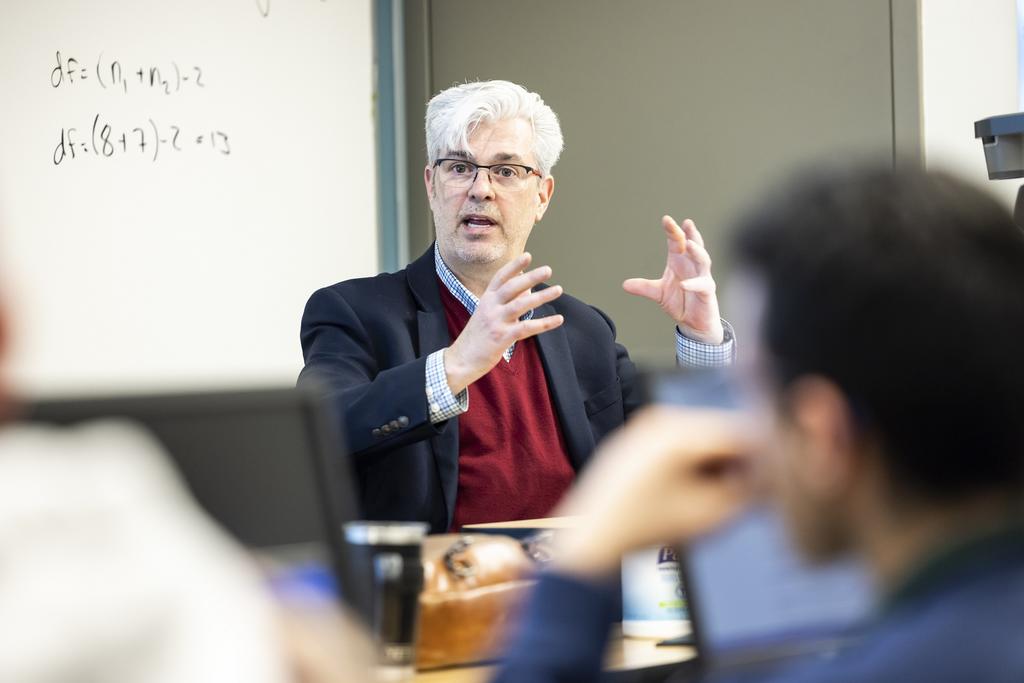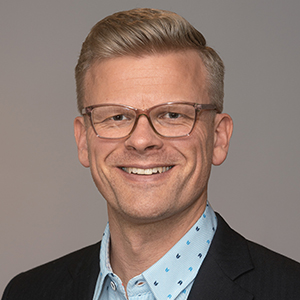The PhD in Political Science program at George Mason University's Schar School of Policy and Government prepares you for teaching, research, and careers in government, consulting, nonprofits, and nongovernmental organizations. The program allows you to combine your studies with experience in the kinds of complex domestic and international political organizations you will be studying.
This model for political science education, patterned after the American Political Science Association’s Congressional Fellows Program, is designed to foster scholarship and a firsthand understanding of domestic and international institutions such as think tanks, international bodies, nongovernmental organizations, journals of political opinion, and congressional and executive branch offices.
Political science doctoral students specialize in one of four fields:
- American Politics and Government
- Comparative Politics
- International Relations
- Public Administration
Customizable to Your Schedule
- Campus is located on the metro line in the Washington, D.C., area
- Choose to study part time or full time
- Classes are held on weekday evenings in case you want to balance work and school

Coursework
The political science doctoral program requires 72 credits of coursework.
- Three foundation courses in government and politics
- Seven courses over two major fields (choose your fields from American government and politics, comparative politics, international relations, and public administration)
- Three courses in a minor field such as political theory or a personalized field
- Three advanced research methodology courses
- Up to 12 credits from electives
- Dissertation focused on political science topic to be presented to PhD committee
Prestigious Faculty
The Schar School's political science graduate programs are ranked in the top 20 percent in the world, according to the Academic Ranking of World Universities. With more than 80 full-time faculty, the Schar School is one of the largest and most vibrant schools of its kind. The faculty hold degrees not only in political science, but also in economics, sociology, international relations, geography, regional science, international relations, civil engineering, medicine, history, anthropology, organizational behavior, and law.

Employers of Recent Graduates
American Islamic Congress
American Political Science Association
American University
Center for Strategic and International Studies (CSIS)
Council for Court Excellence
Edison Electric Institute
James Madison University
Prince William County Government
RAND Corporation
Systems Planning and Analysis, Inc.
The Heritage Foundation
The University of Tennessee at Chattanooga
U.S. Department of Energy
U.S. Department of State
United States Institute of Peace
Student Profile: Aaron Stuvland

After defending his PhD dissertation in November 2021, Aaron Stuvland weighed various employment possibilities. In the end, the Schar School of Policy and Government PhD in political science student turned down several teaching opportunities and accepted an offer from the American Political Science Association (APSA) Congressional Fellowship Program.
The APSA Congressional Fellowship Program is a highly selective, nonpartisan program devoted to expanding knowledge and awareness of Congress. Since 1953, it has brought select professionals to Capitol Hill to experience Congress at work through fellowship placements on congressional staffs.
Stuvland admits he probably would not have considered the APSA fellowship had Associate Professor Jennifer Victor not informed him of it. (The last time a Schar School PhD in political science graduate earned the APSA fellowship was in 2015. Brian Alexander is now a tenure-track faculty member at Washington and Lee University in Virginia.)
Stuvland, who also holds a master’s degree in political science from the Schar School, says relationships with his professors have been key to his success.
“They modeled not only what the school is about, but how to be a good educator,” he said. “That would be the one thing I would highlight at my time at the Schar School. A lot of good teachers, good instruction, good people.”
Read the full article about Aaron Stuvland.



